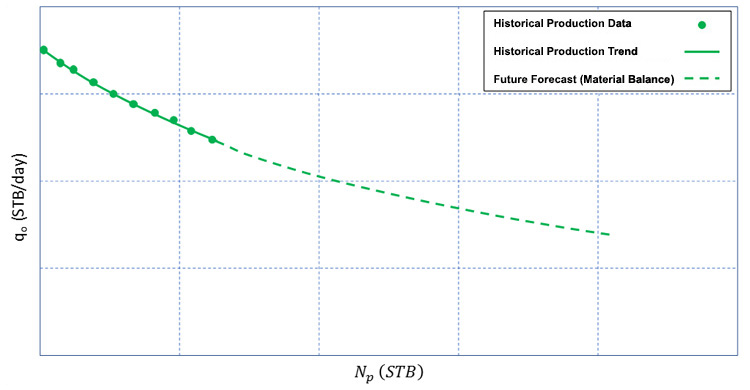If we know the original oil-in-place from either the Volumetric Method or the Material Balance Method, then we can use Equation 4.58d to make future forecasts of reservoir performance with cumulative oil production, . We can do this by simply assuming average reservoir pressures, ; evaluating anticipated production at that pressure, , using Equation 4.58d; and estimating the stabilized oil production rate using either Equation 4.34 or Equation 4.40. Figure 4.09 shows a typical reservoir forecast in terms of .
In Figure 4.09, the historical production period is shown with the solid green data points and solid trendline, while the forecast is shown with the dashed green line. The noisy historical production data are a result of metering errors.
As I mentioned during our discussion on stabilized pressures, the use of in the drawdown calculation of the inflow performance is more consistent with material balance concept than the use of in the drawdown. This is because material balance is based on averaged reservoir properties. Therefore, for making predictions Equation 4.34 or Equation 4.40 should be used.
